On Sunday afternoon, June 2nd, I attended the 55th regular performance of the Izumi Orchestra, and experiencing live music again after a long time was truly remarkable.
There’s an undeniable power and depth to live performances that distinguishes them from CD recordings at home.
Despite being an amateur orchestra, the Izumi Orchestra’s performance rivaled that of professional orchestras.
What’s more, the ticket prices, which would typically range from ¥5,000(abt$32) to ¥8,000($51), were incredibly reasonable at just ¥1,000($6.45), (on June7,2024 today’s exchange rate 1USD about155 Japanese YEN).
In terms of content, the value for money was exceptional. I was truly moved and satisfied, experiencing such heartfelt emotion after a long time.
Contents
About Amateur Orchestras in Japan
How many amateur orchestras in Japan are now?
The exact number of amateur orchestras, it is uncertain, however, it’s estimated to be close to 2,000 organizations, according to The Federation of Japan Amateur Orchestras Corp.
The depth of this community is unparalleled globally, and the number continues to grow each year.
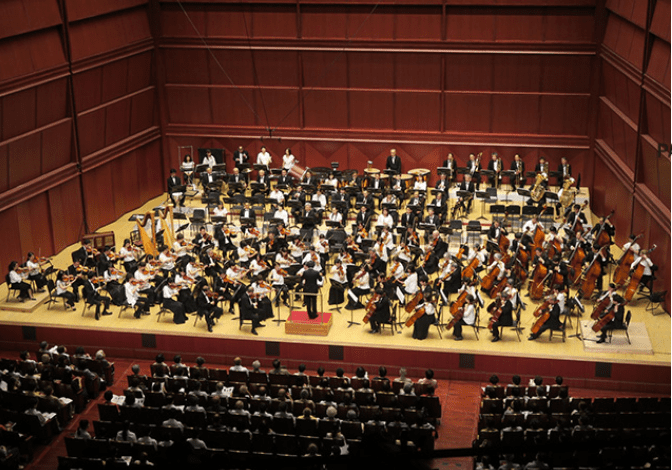
Additionally, there are many local groups and organizations not yet listed in federations or websites. Currently, the popularity of amateur orchestras is on the rise.
When was The Federation of Japan Amateur Orchestras Corp. established?
The Japan Amateur Orchestra Federation was established in 1972 with the aim of revitalizing amateur orchestra activities nationwide and promoting music activities rooted in local communities.
With the motto of “Spreading the Sound of Springs,” the federation emphasizes sharing the joy of music performance among a wide range of age groups, from youth to seniors, both domestically and internationally.
How many members are typically in an orchestra?
The number of performers in an orchestra, referred to as an ensemble, can range from around 10 to as many as 100 or more.
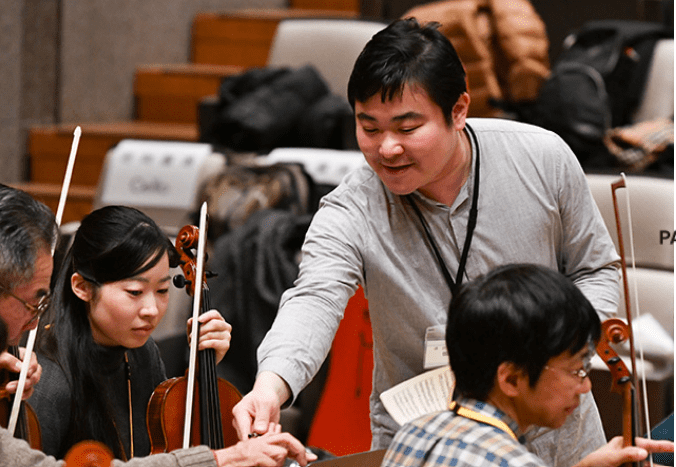
When these individuals perform together, each player may have their own interpretation, which can sometimes lead to variations in rhythm or inconsistency in volume.
This is where the role of the conductor comes in, to coordinate and unify the performance.
Distinguishing between Amateur and Professional Orchestras
There isn’t a strict definition, as various factors come into play, but they are generally distinguished by the following:
Performers:
Amateur Orchestra: Performance is not their primary profession, and they do not receive compensation. Members come from diverse backgrounds in terms of occupation, age, and musical experience.
Professional Orchestra: Performance is their primary profession, and they receive compensation for their work. Members have received a certain level of musical education.
Administration:
Amateur Orchestra: Administration is primarily handled by volunteers within the ensemble. Rehearsal spaces and operating expenses are covered by membership fees.
Professional Orchestra: Operated by artistic organizations or municipalities, often funded through public funds or grants.
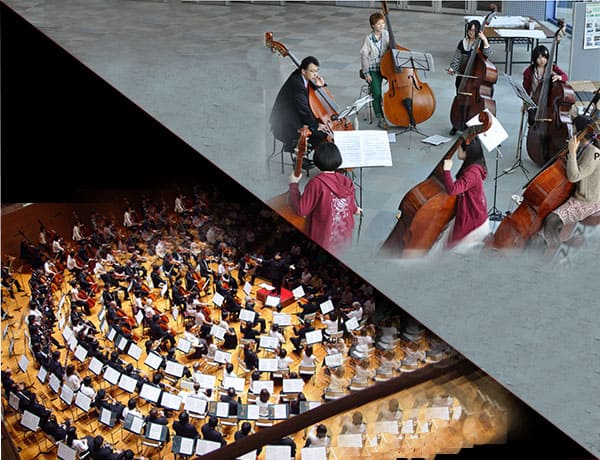
Activities:
Amateur Orchestra: Regular performances, concerts, improving musical skills, and enjoying music.
Professional Orchestra: Regular performances, premiering new works, educational and outreach activities.
Others:
Amateur Orchestra: Varying levels of proficiency, from beginners to experienced players.
Professional Orchestra: High level of proficiency is expected, often requiring regular auditions.
Additionally, there are amateur orchestras capable of performances that rival professional ones.
What’s crucial is not whether it’s “amateur” or “professional,” but rather the enjoyment and dedication to improving musical skills.
About the Izumi Orchestra
The Izumi Orchestra is an amateur orchestra based in Izumi Ward, Yokohama. It was formed in September 1994 by music enthusiasts who responded to a call in a local publication to gather and enjoy chamber music and orchestra performances in a mix of amateur and professional settings.
Initially comprised of fewer than ten members, they performed at various venues, and since 1997, they have held biannual regular concerts at the local public hall.
In April 1997, the group changed its name to the “Izumi Orchestra” and has since focused on improving technical proficiency and expanding its membership. They have also welcomed several conductors to lead them in performances.
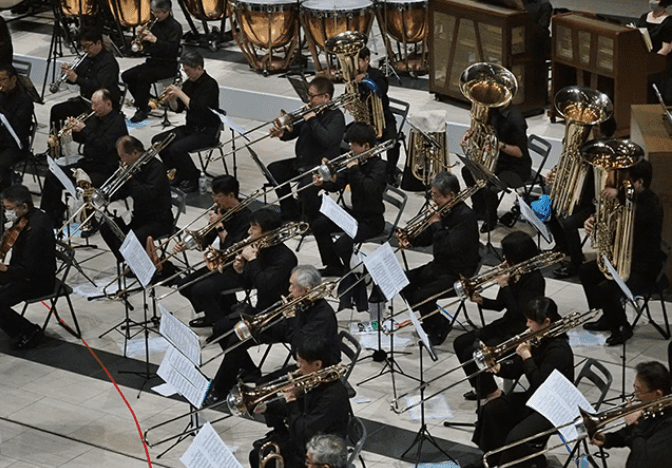
The orchestra aims to achieve high-quality performances as an amateur ensemble, share the joy of music through rehearsals and performances with fellow musicians, and contribute to the development of the local music culture. Typically, they hold biannual regular concerts.
Moreover, I would like to excerpt and edit the biography of the violin virtuoso Masaaki Tanokura, who served as the concertmaster at this concert, from the official website.
About violinist Masaaki Tanokura
Masaaki Tanokura (born September 11, 1976) is currently active as the solo concertmaster of the Japan Philharmonic Orchestra and the concertmaster of the Hyogo Performing Arts Center Orchestra.
Born in Tokyo, he began studying the violin with the Suzuki Method at the age of 4. He attended the Tokyo University of the Arts after graduating from the Tokyo Metropolitan Senior High School of Music and then went on to study at the Tokyo University of the Arts.
He later received a scholarship to study at the Juilliard School in New York, where he earned his bachelor’s degree.
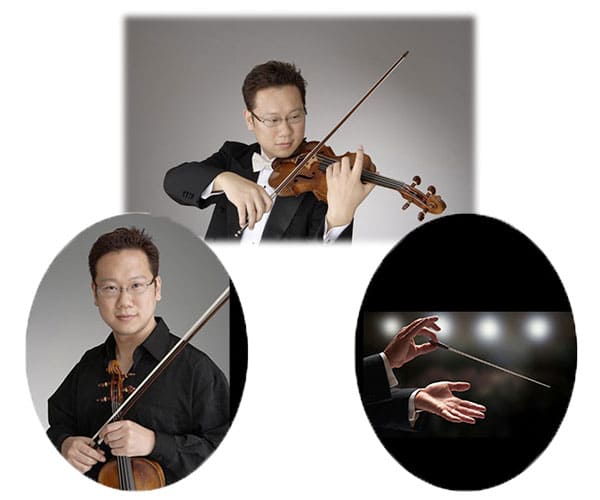
Following that, he trained under Dorothy Delay and other prominent violin teachers, winning or placing highly in numerous prestigious competitions.
In 1991, he won first place in the Student Division of the 45th All Japan Student Music Competition Tokyo Tournament.
Subsequently, in 1995, he won second place in the Japan Student Competition, in 1996 he was a semi-finalist in the Ron Thippo International Violin Competition, and in 1998, he won the Concerto Competition at the Aspen Music Festival in the United States.
He has since won or placed second in numerous other competitions and has received acclaim.
Since his student days, he has been actively performing in France, the United States, and Japan, and his performance of Beethoven’s Violin Concerto No. 5 with the Osaka Philharmonic Orchestra was televised from the Osaka Symphony Hall.
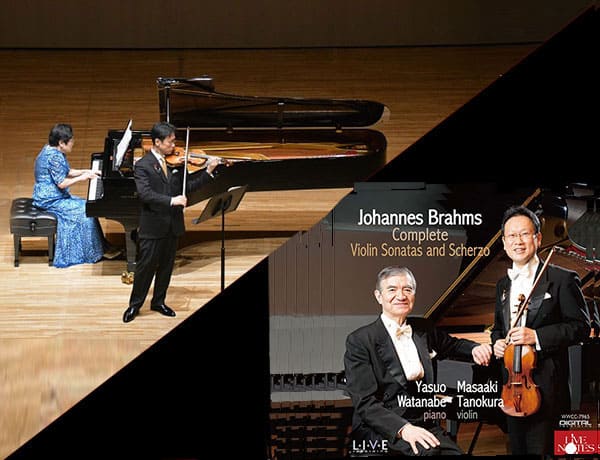
In addition, he has performed as a soloist with orchestras such as the Japan Philharmonic Orchestra, Nagoya Philharmonic Orchestra, Chubu Philharmonic Orchestra, Osaka Philharmonic Orchestra, Hiroshima Symphony Orchestra, and the NHK Symphony Orchestra, among others, as well as with renowned conductors.
Currently, in addition to his solo activities, he is energetically engaged in ensemble performances with many outstanding musicians both domestically and internationally.
He served as concertmaster of the Hiroshima Symphony Orchestra from May 2004 to March 2014, concertmaster of the Nagoya Philharmonic Orchestra from April 2012 to July 2019, and special guest concertmaster of the Osaka Philharmonic Orchestra from September 2012 to March 2014.
In September 2019, he concurrently assumed the position of solo concertmaster of the Japan Philharmonic Orchestra, and in September 2020, he became concertmaster of the Hyogo Performing Arts Center Orchestra.
He was appointed solo concertmaster of the Japan Philharmonic Orchestra in September 2022.
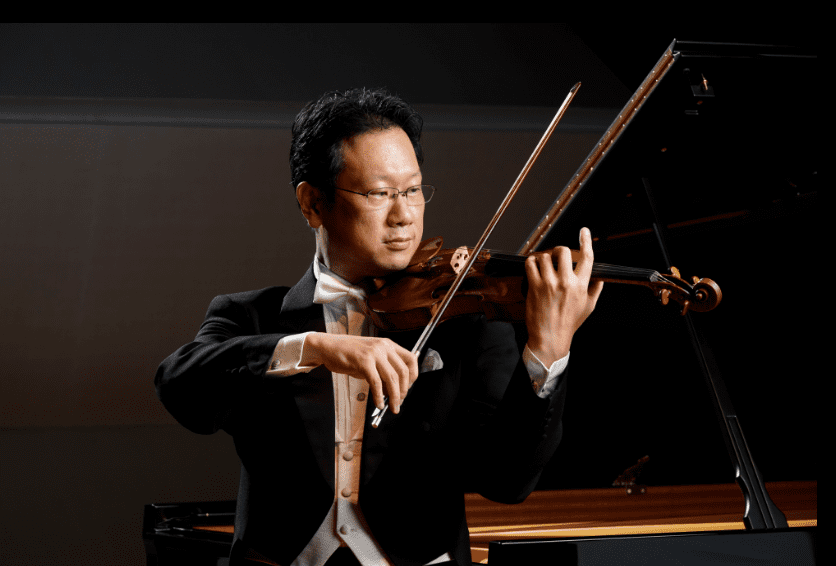
In addition, he has appeared as a guest concertmaster at regular concerts of orchestras such as the Sendai Philharmonic Orchestra, Kanagawa Philharmonic Orchestra, Tokyo Symphony Orchestra, Japan Century Symphony Orchestra, Ryukyu Symphony Orchestra, and KBS Symphony Orchestra (Seoul, South Korea).
Finally, here are two local amateur orchestra in video, one is from Fukushima and the other from Fukuoka and sorry to inform you that no video of the Izumi Orchestra which I enjoyed because the video was not allowed to shoot during their performances.
If you need information on;
① The Federation of Japan Amateur Orchestras Corp:https://www.jao.or.jp/index.php
⓶ Izumi Orchestra: http://orchestra.musicinfo.co.jp/~izumi/index.html
Thanks for visiting here and have a nice day!

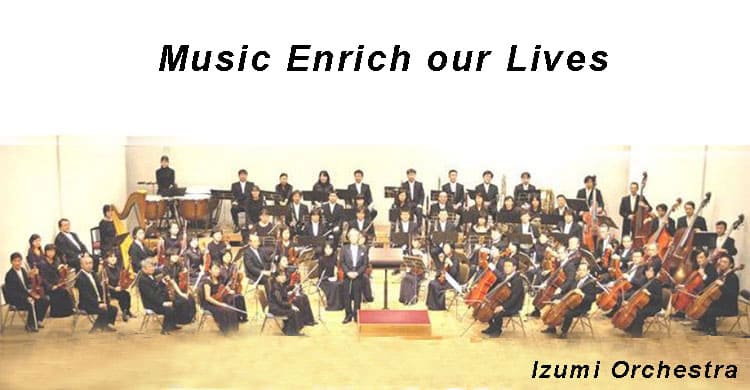


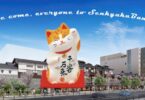




Leave a Comment